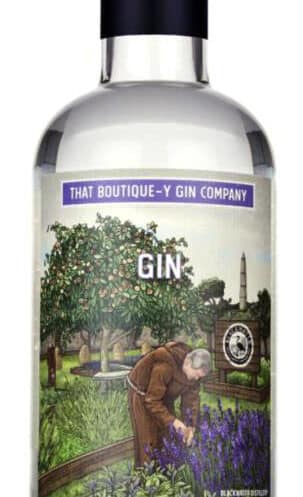It was through monasteries that the trade of distillation passed from the Arab and Muslim world to the Europeans. Monastic societies used distilling to create “Aqua Vitae.” Waters of life, these were medicines in the tradition of the time that Monastic Gin pays homage to.
Many European monasteries were solitary and self-sufficient. Therefore, when monks were distilling with mostly what grew in the fields nearby. The team at Blackwater Distillery in Ireland teamed up with That Boutique-y Gin Company to re-create what a Monastic Gin may have tasted like.
They tell the story in better detail here— but in short, there weren’t any citrus fruits available at the time. Nor was the spice trade at its peak. Black pepper, cinnamon, cassia— all were wildly expensive. So instead they looked to their hedgerows. Rose hips, juniper berries, heather, angelica, and the bright yellow orbs of dandelion with their delicious, bitter leaves. These were what they had to work with. And it’s likely that these medicines, that bear more than a passing resemblance to the recreationally consumed gin of modern times, contained these sort of local ingredients.
Tasting Notes
Monastic gin is quiet and juniper-led. Hints of musky angelica root and heather give depth and color. It’s strikingly juniper-led with mossy, fougère undertones.
Green garden notes illuminate the palate. Juicy rose hips early, along with a creamy mid-palate that might suggest citrus fruit (though there is none in here).
Juniper has a clean and crisp mid-palate peak. It’s pleasant and piney. Towards the end, there’s a slice minty note that lends the herbs a cool, crispness. Heather and Elderflower are the most clear; it has a moderate length finish that is jammy with the slightest hint of orange marmalade.
Despite using only locally grown botanicals, Monastic Gin suggests to the palate a lot of similarities flavor wise to gins using distant grown herbs and spices.
Cocktails
Monastic Gin has a nice balance and nice mouth feel. It lends itself quite nicely to the herbal counterpoint of vermouth in a Martini.
This gin though does a good job of executing a floral and herbal, classic style blend. Monastic Gin is easy to use in any number of cocktails. It’s a bit shy in a Negroni, but it stands out nicely in Gimlets and Tom Collins.
Overall, Monastic Gin
Not only does Blackwater Distillery tell a provocative story about early distilling practice, they make a good gin. Nicely balanced, Monastic Gin straddles the line of contemporary herb/floral forward and classic style gin.
Recommended.

